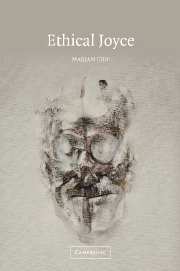Book contents
4 - Ethical representation and Lucia's letters
Published online by Cambridge University Press: 22 September 2009
Summary
He stopped. So did they all – hand glasses, tin cans, scraps of scullery glass, harness room glass, and heavily embossed silver mirrors – all stopped. And the audience saw themselves, not whole by any means, but at any rate sitting still.
Virginia WoolfOn Monday, September 4, 1939, the day after England and France declared war on Germany, James Joyce wrote a letter to Lucie Noël Léon, who was his friend and the wife of his professional assistant, Paul Léon, asking her to visit his daughter, Lucia Joyce, a diagnosed schizophrenic who was isolated in a sanatorium at Ivry. Joyce was extremely worried about the well-being of his beloved child. Concerned that the rapidly expanding war would soon overtake Lucia, he wrote to Mrs. Léon from La Baule in the French countryside, where he had retreated from Paris; and he expressed his fears that his troubled daughter was alone, in danger, and perhaps desperately afraid.
She is caught in a trap at Ivry. I was assured by Dr. Delmas at the Maison de Santé I could leave without the least anxiety, that he had made all the preparations here, that he had the big hotel edelweiss (70 rooms) to put his patients in, a fleet of cars to transport their staff and furnitures and the promised aid of government (who were requisitioning his Ivry establishment) to leave at once … He has made, I found out on Saturday, no arrangements whatsoever and has no means of transport available …
- Type
- Chapter
- Information
- Ethical Joyce , pp. 109 - 143Publisher: Cambridge University PressPrint publication year: 2002



